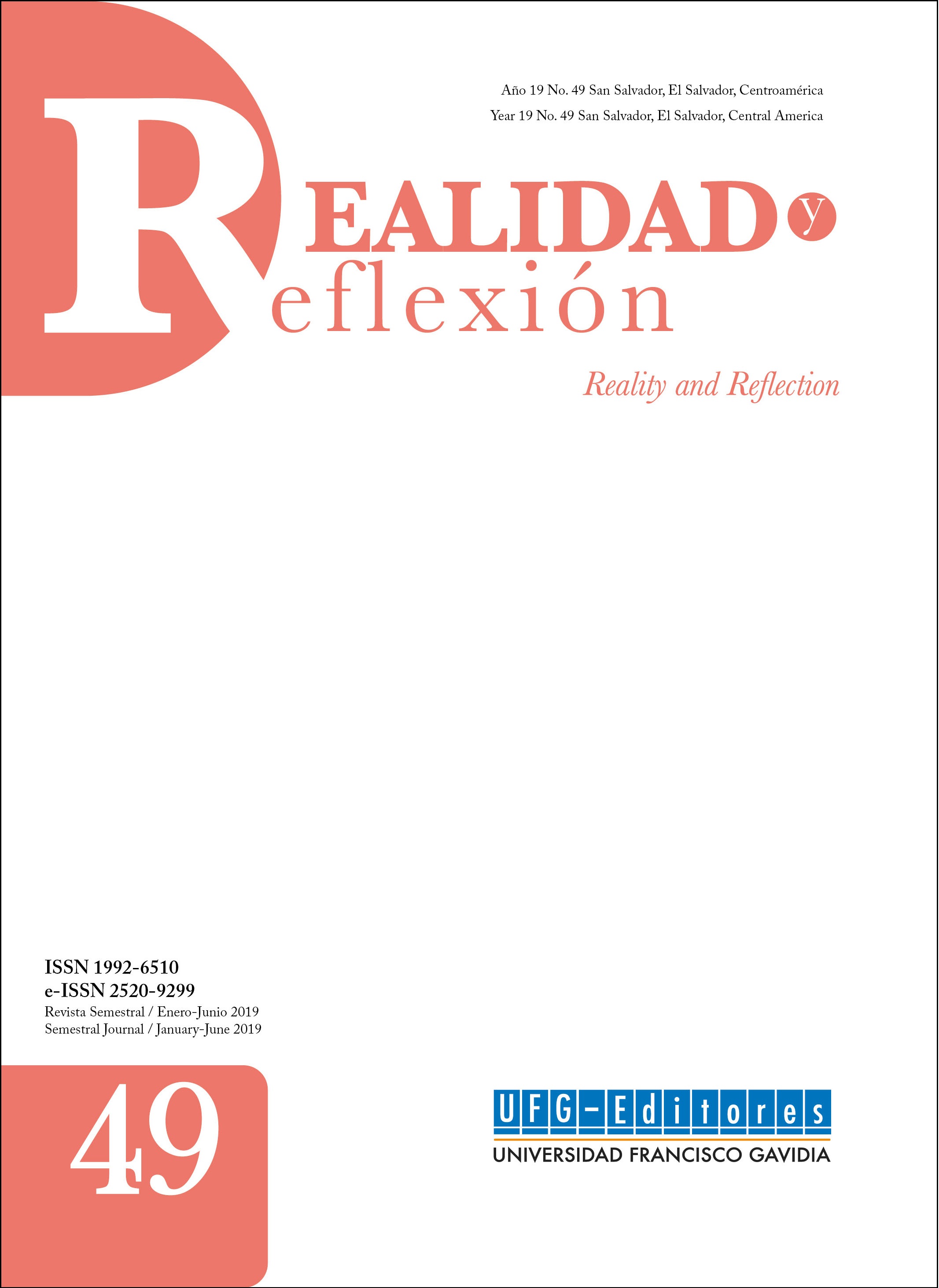Agricultura orgánica, maíz criollo y extensión rural: percepciones de profesionales salvadoreños
DOI:
https://doi.org/10.5377/ryr.v49i49.8068Palabras clave:
maíz, El Salvador, orgánico, CENTA, extensión, criolloResumen
El presente artículo tiene como objetivo realizar un análisis exploratorio y cualitativo sobre las percepciones de extensionistas rurales públicos salvadoreños en relación a la agricultura orgánica y a la producción de maíz utilizando semilla criolla.
Para tal fin, fueron encuestados todos los extensionistas públicos del Centro Nacional de Tecnología Agropecuaria y Forestal (CENTA) laborando en los departamentos de La Libertad y Sonsonate (N=28).
Los resultados muestran que los extensionistas encuestados consideran a la agricultura convencional como más lucrativa y menos amigable con el medio ambiente, en contraposición a la agricultura orgánica.
De la misma forma, estos profesionales del sector público consideran al maíz criollo en términos generales como menos productivo y lucrativo que el maíz híbrido, pese a que el primero es visto como mejor adaptado a las condiciones ambientales y climáticas del país.
Descargas
1558
Descargas
Publicado
Cómo citar
Número
Sección
Licencia
© Universidad Francisco Gavidia (UFG)
Política de acceso abierto y derechos de autor
- El contenido y opiniones vertidas en cada contribución son responsabilidad de sus autores. Los autores ceden los derechos de edición y publicación, en versión impresa y digital, a la Universidad Francisco Gavidia.
- La revista Realidad y Reflexión es alojada en las plataformas institucionales de difusión, así como en bases de datos y otras páginas de divulgación científica.
- Las publicaciones de la Universidad Francisco Gavidia se acogen a la normativa salvadoreña de derechos de autor, contemplada en la Ley de Propiedad Intelectual https://wipolex-res.wipo.int/edocs/lexdocs/laws/es/sv/sv001es.pdf
- UFG Editores no realiza ningún cobro por postular, procesar, publicar o acceder a los aportes publicados; los miembros del Consejo Editorial y quienes conformen el Comité Científico en los número monográficos ejercen sus funciones con carácter Ad honorem.
- La revista Realidad y Reflexión opera bajo la modalidad de acceso abierto, a fin de agilizar la transferencia del conocimiento, disminuir la brecha de acceso a la información, incrementar la visibilidad, y, por lo tanto, la difusión de los aportes publicados.
- La revista declara su compromiso con el acceso abierto en la modalidad diamante, lo que significa que los lectores pueden acceder a todos los contenidos de manera gratuita y sin restricciones, y que los autores no deben asumir ningún costo de publicación o procesamiento de sus documentos.
- Las contribuciones pueden ser descargadas, utilizadas y distribuidas, atendiendo las condiciones de la licencia Creative Commons https://creativecommons.org/licenses/by-nc-sa/4.0/

